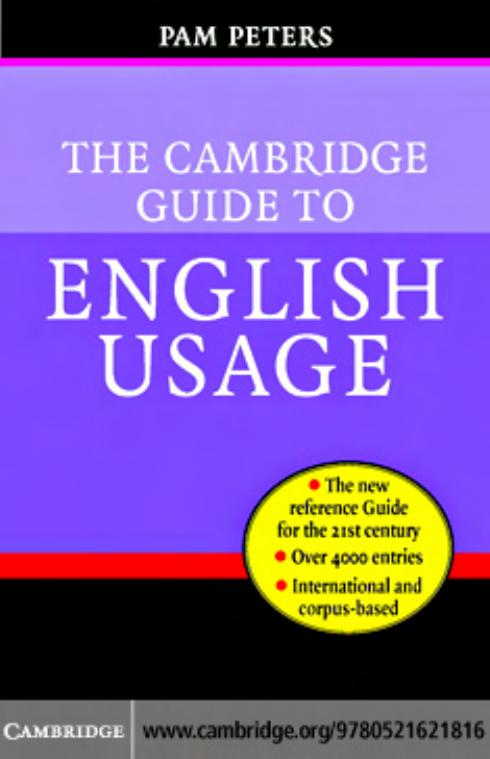The Cambridge Guide to English Usage by PAM PETERS

Author:PAM PETERS [PETERS, PAM]
Language: eng
Format: epub, pdf
Published: 2011-01-07T04:35:27.068000+00:00
bookish boyish
childish churlish feverish
fiendish foolish
freakish girlish
owlish
irrelevance or irrelevancy
popish
priggish prudish selfish
sheepish
Irrelevancy had a 40 years headstart on irrelevance stylish
waspish
in C19, but the latter has more than made up the The examples show that these words are usually built ground in the following century. Dictionaries
on stems of one-syllable – though standoffish proves everywhere give it priority, and irrelevance otherwise. Many such words have negative
outnumbers irrelevancy by more than 10:1 in BNC
implications, and writers who are concerned about data, though in CCAE it’s more like 2:1. Neither them in, say, childish will resort to the neutral database suggests any division of labor that would childlike instead (see further under -like).
make irrelevance the more abstract of the two (see In informal language -ish is highly productive, further under -nce/-ncy). Only irrelevancy can be adding a tentative quality to the words formed with it.
made plural (irrelevancies), yet both words can be Adjectives like greenish, whitish, brownish are not made countable in the singular ( an irrelevancy, an quite the color named in them; and lowish, tallish, irrelevance). British writers rarely seem to qualify thickish hint at a particular quality without asserting irrelevancy, whereas they give pen to various kinds it. In indicating age or time, we may use -ish words to of irrelevance including (an) expensive /
avoid sounding too strict about the matter:
293
Download
The Cambridge Guide to English Usage by PAM PETERS.pdf
This site does not store any files on its server. We only index and link to content provided by other sites. Please contact the content providers to delete copyright contents if any and email us, we'll remove relevant links or contents immediately.
| Dictionaries | English |
| Foreign Language Dictionaries & Thesauruses | Lexicography |
| Slang & Idioms | Synonyms & Antonyms |
| Thesauruses |
A Dictionary of Sociology by Unknown(3085)
The Art of Dramatic Writing: Its Basis in the Creative Interpretation of Human Motives by Egri Lajos(3068)
The Dictionary of Body Language by Joe Navarro(2999)
0041152001443424520 .pdf by Unknown(2846)
How The Mind Works by Steven Pinker(2816)
Day by Elie Wiesel(2786)
Merriam-Webster's Collegiate Thesaurus, Second Edition by Merriam-Webster Inc(2761)
The Meaning of the Library by unknow(2573)
The Official Guide to the TOEFL Test by ETS(2332)
A History of Warfare by John Keegan(2244)
The Emotion Thesaurus: A Writer's Guide to Character Expression by Puglisi Becca & Ackerman Angela(2144)
Emotion Amplifiers by Angela Ackerman & Becca Puglisi(2035)
MASTER LISTS FOR WRITERS: Thesauruses, Plots, Character Traits, Names, and More by Bryn Donovan(1943)
Merriam-Webster's Pocket Dictionary by Merriam-Webster(1935)
The Cambridge Guide to English Usage by PAM PETERS(1914)
Star Wars The Rise of Skywalker The Visual Dictionary by Pablo Hidalgo(1902)
More Than Words (Sweet Lady Kisses) by Helen West(1867)
Lucky Jim by Kingsley Amis(1754)
American Accent Training by Ann Cook(1662)
